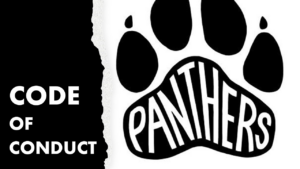The words listed below are often found on tests and exams. Get to know what they mean so that your are answering what is being asked accurately.
| Analyze | Examine the main ideas in detail and show how they are related
e.g. “Analyze the appropriateness of your career choice in terms of your interests, personality, skills and values.” |
| Compare | Bring out points that are the same and the points that are different.
e.g. “Compare the game of football to rugby.” |
| Contrast | Discuss the differences only
e.g. “Contrast two characters’ views within a specific novel or movie.” |
| Define | State the meaning of the word. Be specific, and don’t use the term in the definition
e.g. “Define the following musical terms: forte, piano, fermata” |
| Describe | Tell about in detail
e.g. “Describe how the digestive system works” |
| Diagram or Illustration | Draw a picture, chart or image to illustrate the information
e.g. “Diagram the endocrine system of the frog” or “Illustrate the use of a birds’ mouth on a rafter.” |
| Discuss | Explain carefully by stating the pros and cons of an issue
e.g. “Discuss in full five factors that can lead to stress.” |
| Evaluate | Examine and judge the advantages and disadvantages
e.g. “Examine the effectiveness of the criminal justice system.” |
| Explain | Tell about a topic or tell how to do it (make it clear)
e.g. “Explain the nutritional benefits of Vitamin C.” |
| Justify | Show to be right
e.g. “Justify the enforcement of the War Measures Act during the Quebec Crisis.” |
| List | Make a list of names, factors, terms or words
e.g. “List the capitals of the provinces, starting with the left-most.” |
| Outline | List the main ideas or sketch of a plan
e.g. “Outline the steps required to apply for a passport.” |
| Prove | Show to be true
e.g. “Prove that 20 – 4x = 0, where x = 5” |
| State | To tell or declare
e.g. “State the root causes of the Great War.” |
| Summarize | To make a summary or tell the most important parts
e.g. “Summarize the plot line of Hamlet.” |










